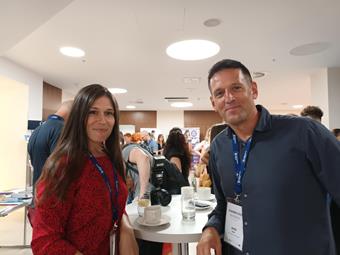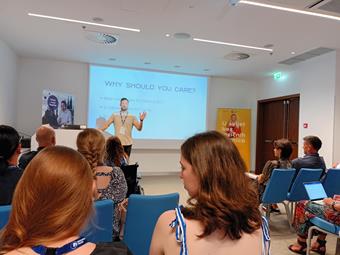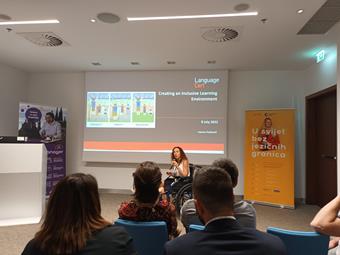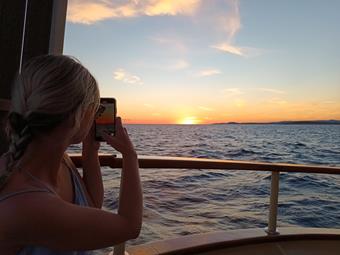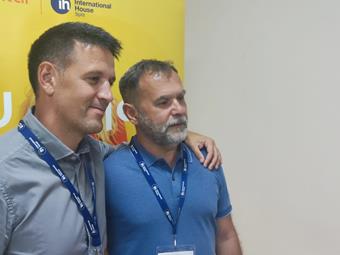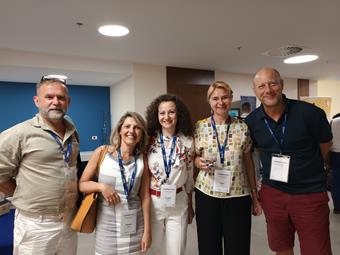Congratulations to Josip and the team at Jantar IH Split for organising an excellent ADRIES 22 Conference (Adriatic Education Development Research and Innovation Symposium).
The overall theme was innovation in education, to assist schools adapt and innovate to improve their competitive performance in a tough economic marketplace.
One of the technology threads was Virtual Reality.
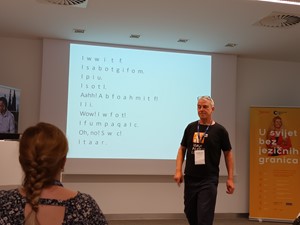 As well as being able to test some virtual reality goggles, there were two particularly engaging talks on its ability to boost engagement and knowledge retention in training applications, for example when performing manual tasks. This was also discussed within the context of Total Physical Response (TPR) as a key driver of learning through VR. Understanding that these interconnect may perhaps show where VR may have a place in the language classroom of the future.
As well as being able to test some virtual reality goggles, there were two particularly engaging talks on its ability to boost engagement and knowledge retention in training applications, for example when performing manual tasks. This was also discussed within the context of Total Physical Response (TPR) as a key driver of learning through VR. Understanding that these interconnect may perhaps show where VR may have a place in the language classroom of the future.
The engagement of students at all levels with robotics and simple programming was also showcased. For language schools, a class project for young learners and a lego-robot costing a couple of hundred euros can provide endless opportunities for language learning and a real wow-factor!
If any IH schools are interested in exploring how robotics, VR, or TPR can be integrated into their curriculum just get in touch!

On the subject of curriculum development, Simon from IH Sofia shared his plans for a “Globally Responsible Citizens” curriculum, and described how this is the subject of a new Erasmus project bid. Good luck Simon!
On the practical side of things, the results of the Next Generation Placement Test (NGPT) project were shared. The objective of this project was to reframe the experience of taking a placement test and reduce the stress by creating an algorithm based adaptive test. This online test selects questions based on student’s responses so there are no questions which are way above the students’ level or ability. The test is available for English, German, Spanish, French, Italian and Russian. In autumn 2022 it will be having its final rounds of testing by IH Split and the British School Pisa, and after that the technology will be freely available.
With all this talk of technology, it was lovely to hear from our friend Mihai Gânj from IH Bucharest on his advice for building a healthy relationship for us, our children and our families with our digital world. We need technology in our modern lives, but just as overconsuming too much of the wrong food can adversely affect our health, overconsuming too much digital technology can affect our mental, emotional and physical health. Mihai presented some scientifically proven guidelines and practices for people of all ages.
A potentially valuable part of the conference was the ability to network and discuss future Erasmus projects that schools could collaborate on. Palmina La Rosa IH Catania and Fabrizio Mascali From IH Palermo Language Centre showcased their project ideas concerning coaching for 21st Century Skills and qualifications for teachers.
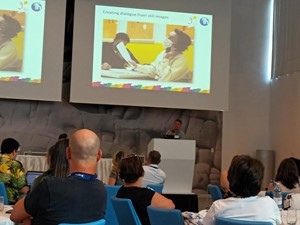
The opportunities to work in collaborative groups with likeminded schools on EU funded projects has great future potential for many schools within the IH network. It is a testament to the innovative outlook of our network that colleagues from IH Bucharest, IH Catania, IH Como|Merate|Lecco, IH Galway, IH Palermo Language Centre, IH Sofia, IH Timisoara, IH Torun – and of course IH Split! - were all at the conference looking for ways to get involved and innovate. And we know that other schools within the network are involved with current bids, waiting to hear the outcome in August.
There is a bright future for the languages industry, and it’s clear from events like this that IH schools will continue to be at the heart of leading it.
